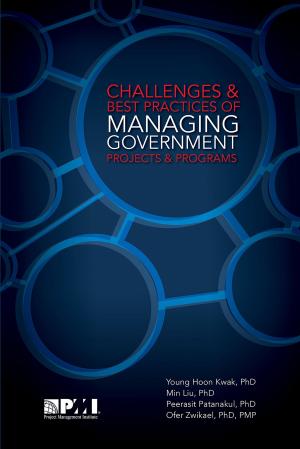Learning for Success
How Team Learning Behaviors Can Help Project Teams to Increase the Performance of Their Projects
Business & Finance, Management & Leadership, Management| Author: | Chantal Savelsbergh, Peter Storm, Ben Kuipers | ISBN: | 9781628251326 |
| Publisher: | Project Management Institute | Publication: | April 1, 2010 |
| Imprint: | Project Management Institute | Language: | English |
| Author: | Chantal Savelsbergh, Peter Storm, Ben Kuipers |
| ISBN: | 9781628251326 |
| Publisher: | Project Management Institute |
| Publication: | April 1, 2010 |
| Imprint: | Project Management Institute |
| Language: | English |
In Learning For Success, authors Peter Storm, Chantal Savelsbergh and Ben Kuipers contend that most projects have two different but complementary aims: to perform and to learn. Learning helps the performance of the current project and of future projects. It works in the reverse also: good performance stimulates the desire to become even better, which leads to discovering how to do it. In other words, good performance drives the desire to learn. How well do these principles bear out in practice? This book, subtitled How Team Learning Behaviors Can Help Project Teams to Increase the Performance of Their Projects, presents research on whether team performance and team learning are positively related. Simple laboratory experiments have shown this to be the case, but the authors test to see whether or not the same holds true on real-world projects, which are more complex, longer and more difficult.
In Learning For Success, authors Peter Storm, Chantal Savelsbergh and Ben Kuipers contend that most projects have two different but complementary aims: to perform and to learn. Learning helps the performance of the current project and of future projects. It works in the reverse also: good performance stimulates the desire to become even better, which leads to discovering how to do it. In other words, good performance drives the desire to learn. How well do these principles bear out in practice? This book, subtitled How Team Learning Behaviors Can Help Project Teams to Increase the Performance of Their Projects, presents research on whether team performance and team learning are positively related. Simple laboratory experiments have shown this to be the case, but the authors test to see whether or not the same holds true on real-world projects, which are more complex, longer and more difficult.















